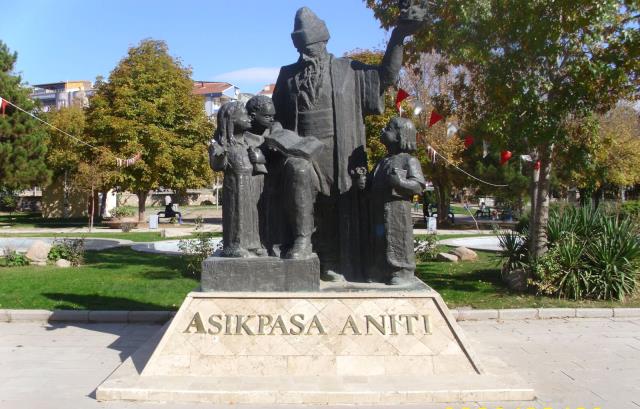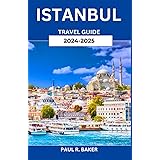Aşık Pasha, born in Kırşehir, one of the 13th century Sufis, evaluated all beings in the universe in relation to each other in a unity created by God. Thus, within the framework of Islamic mysticism, God, the universe and human beings have preferred the way of explaining them all by relating them to each other, and they have not dealt with them one by one.
An important issue that the Turks have achieved universality is the existence of universal state ideals. This is in question in the Oguz Kagan legend, it is revealed in the Bilge Kagan Inscriptions, in the works of Farabi in question, and it has been examined philosophically. In Karahanlı Yusuf’s 6000-odd Kutadgu Bilig work, the first Turkish work has the ideal of the universal state. Turkish states have always developed as empires. There is a universal state ideal in the Ottomans as well, it came to life with the red apple ideal.
Tengri-God
Turks embraced the universe with their understanding of Tengri, that is, god. From the earliest times, they had a great belief that man was created. Again, as it is written in the Bilge Kagan Inscription, “God lives time, man was created mortal.” The first word used in the Huns was the Turkish two words Tengri, and then it continued as the sky Tengri in the Gök Turks. One of our living thinkers, Dr. Sait Başer has published a study book on the similarity of the sky god and the attributes of Allah and has identified many similarities in this regard. Here are the inscriptions on which it is based, the Göktürk Inscriptions.
Ahmed Yasawi whispered from Turkistan:
“The carefree person is not the person; understand that.
Loveless human, animal species, listen to this.”
—
Âşık Pasha, who gave a voice from Anatolia:
Become Adami so that you can be love in the moment.
[They say man, the one who is light]
The Turkish state gets its power by creation. The trinity of heaven, earth and man was first and foremost being created.
The statements in the Bilge Kagan inscription that “the man whose time lives God is created and he is mortal” and the mention of the earth and the sky are the proofs of the advanced theology of the Turks. In addition, expressions such as “I won because God wanted” in the Bilge Tonyukuk inscription are indicators of the dominance attributed to the will of God.
Two warnings from our Master Âşık Pasha:
1. The scholar’s material and spiritual greed,
This is the main reason why it cannot speak to the public.
2. The most damage to a nation,
It comes from scholars who cannot limit their greed.
Insatiability makes the scholar ‘chatter’ who speaks for the people.
Three things surprise people:
The Realm that existed while it was not;
Adam, who came from the realm;
Mana that takes form from Adam…
That;
The meaning of three things is understood by ‘relative’ to three other things:
Realm[Universe] to Adam[Nothing];
Adam[Man] to the Realm;
Word/Mana goes to Adam…
//-: Âşık Paşa
“Time is human.
If man is good, time is also good;
If man is bad, time is also bad.”
//-: Âşık Paşa
Because;
‘Nizâm-ı Alem’ means human.
When man is corrupted, both the order and the realm are corrupted.
Because ‘order’ and ‘the world’ suffer corruption;
however, it is always human beings who ‘ifsâd’.
…………………………..
13. yüzyıl Mutasavvuflarından Kırşehir doğumlu Aşık Paşa evrendeki bütün varlıkları Tanrının oluşturduğu bir bütünlük içerisinde birbirleriyle ilişki içinde değerlendirmiştir. Böylelikle İslam tasavvuf anlayışı çerçevesinde Tanrı, evren ve insan, hepsini birbiriyle ilişkilendirmek yoluyla açıklama tarzını tercih etmişler tek tek ele almamışlardır.
Türklerin evrenselliği yakaladıklarına ilişkin önemli bir husus evrensel devlet ideallerinin mevcudiyetidir. Oğuz Kağan efsanesinde bu söz konusu, Bilge Kağan Yazıtları’nda da söz konusu Farabi’nin eserlerinde ortaya konmuştur felsefi olarak incelenmiştir. Karahanlı Yusuf’un 6000 küsür dizelik Kutadgu Bilig eserinde ilk Türkçe yazılan eserde yine evrensel devlet ideali mevcuttur. Türk devletleri hep imparatorluk olarak gelişmişlerdir. Osmanlılarda da evrensel devlet ideali mevcuttur, kızıl elma ideali ile hayat bulmuştur.
Tengri-Tanrı
Türkler, Tengri yani tanrı anlayışları ile evreni kucaklamışlardır. En eski zamanlardan başlayarak insanın yaratıldığına büyük bir inanç duymuşlardır. Yine Bilge Kağan Yazıtında yazıldığı üzere “Zamanı tanrı yaşar, kişioğlu ölümlü olarak yaratılmıştır.” Hunlarda ilk olarak kullanılan kelime Türkçe iki kelime Tengri daha sonra Gök Türkler’de gök Tengri olarak devam etmişti. Yaşayan düşünürlerimizden Dr. Sait Başer gök tanrı ile Allah’ın vasıfları benzerliği konusunda bir inceleme kitabı yayınlamış ve bu konuda çok sayıda benzerlikler tespit etmiştir. Burada esas aldığı yazıtlardır, Göktürk Yazıtlarıdır.
Türkistan’dan fısıldamış Ahmed Yesevî:
“Dertsiz insan, insan değil; bunu anlayın.
Aşksız insan, hayvan cinsi bunu dinleyin.”
—
Anadolu’dan ses vermiş Âşık Paşa:
Âdemî oldur ki anda aşk ola.
[İnsan diye, ışkı olana derler]
Türk devleti gücünü yaratılışla alır. Gök, yer ve insan üçlüsü ilk önce ve temel olarak yaratılıyordu.
Bilge Kağan yazıtında yer alan “zamanı tanrı yaşar kişioğlu yaratılmıştır ve ölümlüdür” ifadeleri, yer ile gökden bahsedilmesi, Türklerin gelişkin bir ilahiyatlarının olduğunun kanıtlarındandır. Ayrıca Bilge Tonyukuk yazıtında yer alan “Tanrı istediği için kazandım” tarzı ifadeler de, tanrı iradesine atfedilen başatlığın göstergeleridir.
Üstadımız Âşık Paşa’dan iki uyarı:
1. Âlimin maddî ve manevî aç-gözlülüğü,
halka söz geçirememesinin temel nedenidir.
2. Bir millete en çok zarar,
hırsına sınır çekemeyen bilginlerden gelir.
Doymazlık, bilgini, halk için konuşan ‘geveze’ kılar.
Üç şey ki hayret verir insana:
Yok-iken var-olan Âlem;
Âlem’den vara gelen Âdem;
Âdem’den sûret bulan mana…
Ki;
Üç şeyin manası, diğer üç şeye ‘nisbet’-ile anlaşılır:
Âlem[Evren], Adem’e[Yokluk’a];
Âdem[İnsan], Âlem’e;
Söz/Mana ise Âdem’e…
//-: Âşık Paşa
“Zaman, insan’dır.
İnsan iyi ise zaman da iyidir;
insan kötü ise zaman da kötüdür.”
//-: Âşık Paşa
Çünkü;
‘Nizâm-ı Âlem’ insan demektir.
İnsan bozuldu mu nizâm da bozulur âlem de.
Zîrâ ‘nizâm’ ve ‘âlem’ fesâd’a uğrar;
ancak ‘ifsâd’ eden her dâim insandır.
Aşık Paşa, Garipname





















